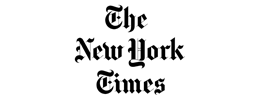Related

Marron collaborator Donald Boyd discusses his coauthored paper, "The New York City Teachers’ Retirement System: Fiscal Issues and Risks" with Charles F. McElwee of City Journal. When asked how the Covid-19 crisis could affect the TRS, Boyd answers:
Unfortunately, the economic impact of Covid-19 presents risks to city tax revenue and to stock market returns. Higher pension contributions may be required when the city budget and taxpayers can least afford them. Based on previous research, this correlation is real, though not guaranteed in every downturn. Its effects are particularly significant for New York City, which relies heavily on income taxes influenced by financial markets. Ignoring this correlation leads policymakers to underestimate risks to budgets.
TRS will likely have significant shortfalls in the fiscal year that ends this June. Absent surging financial markets in May and June, a 10 percent shortfall—a negative 3 percent return when TRS is assuming positive 7 percent—is plausible. This would represent a shortfall of $5 billion to $6 billion in the TRS’s defined-benefit plan, which taxpayers would need to make up over 15 years. The other major city plans invest similarly and would have large deficits, too, as analysis from the Independent Budget Office (IBO) shows. The IBO has estimated that city tax revenue could fall short by about $10 billion from now through the end of the next fiscal year.
Absent sharp recoveries in financial markets soon—much greater than the 25 percent bounce back between the March nadir and late April—taxpayers will need to brace for higher taxes or cuts in services to pay for higher pension contributions, on top of revenue losses.
Please fill out the information below to receive our e-newsletter(s).
*Indicates required.